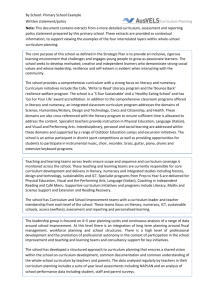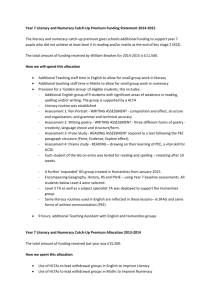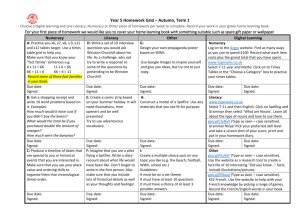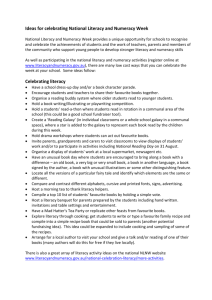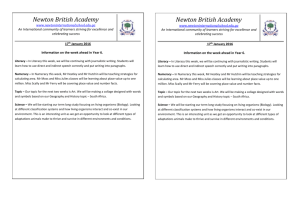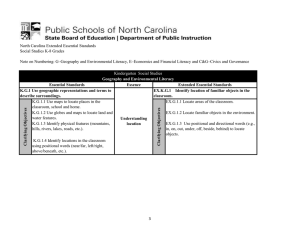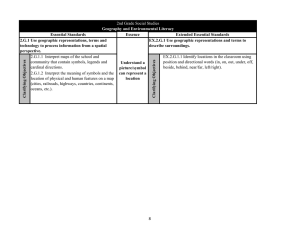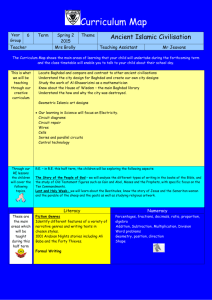Workshop 3 - PowerPoint - Department of Education
advertisement
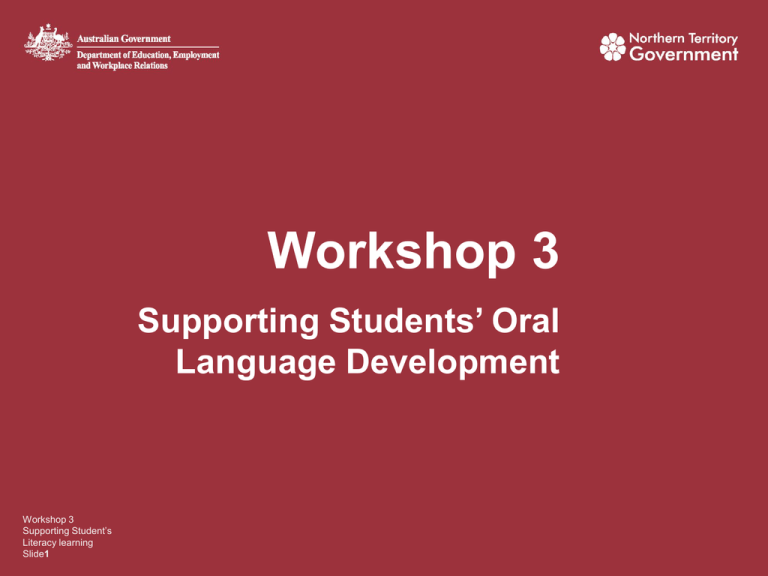
Workshop 3 Supporting Students’ Oral Language Development Workshop 3 Supporting Student’s Literacy learning Slide1 Reflection Discussion in Pairs - Reading on Register from Workshop 2 • Select something from the reading • Explain it in your own words • Give an example of what it might mean for you in your daily work. Workshop 3 Session 2 Slide 2 Note Before introducing any small group activity Children will need to be taught the language and vocabulary required for the activity before being expected to take part in it successfully. For this reason small group activities should be planned as part of the classroom program or topic being studied not as separate one-off activities. Workshop 3 Session 2 Slide 3 Small group oral activity E.g. One way information gap task A •• C The one who has the information B • Has no information • Gives clear precise information • Listens carefully to A for instruction / information • Answers clarifying questions from B • Asks clarifying questions from A C Observes and discusses the activity with A and B when it is finished. Workshop 3 Session 2 Slide 4 Small group oral activity E.g. Two way information gap task . •A, B, C and D sit in a circle facing each other •4 pictures in a sequence •Must talk but not show •Clear, precise information sharing •Only look when confident E – Records examples of the language used Workshop 3 Session 2 Slide5 Small group oral activity E.g. Describe and draw Director Other student • C • Draws a picture or • Listens attentively series of shapes • Draws pictures • Gives clear, precise and shapes after instructions instruction • Uses positional language Observer - Records examples of language used Workshop 3 Session 2 Slide 6 Analysis of language used Reflect on: • the language that was used during each of the small group activities • examples of language used by the groups • function of the particular language item. Workshop 3 Session 2 Slide 7 Planning Framework A. Getting ready B. Show me how - modelling C. Help me do it – guided practice D. Let me do it myself – independent practice E. What did I learn - reflection Workshop 3 Session 2 Slide 8 Reflection • What did you learn from this session? • What skills/ knowledge did you need to participate? • How did you feel during and after the activity? • Have you seen small group activities used in your school? • Will you use these with your students? Workshop 3 Session 2 Slide 9 Homework Task This homework task is in two Parts: • Part One (Begin or complete this during Workshop 3) • Part Two Discuss the lesson with the teacher and ask if you can deliver it during one of your small group sessions. Workshop 3 Session 2 Slide 10 Glossary • Words on the poster? • Any words you want to note to find out more about (Google, ask a colleague) • Add to the Glossary page at the end of your workbook Workshop 3 Session 2 Slide 11 Conclusion Explore opportunities for oral language development through small group activities. Examine a range of activities suitable for use with small groups. The Strong Literacy and Numeracy in Communities Pilot was funded by the Australian Government Department of Education, Employment and Workplace Relations as part of the Education Revolution – Improving Our Schools – National Action Plan for Literacy and Numeracy

